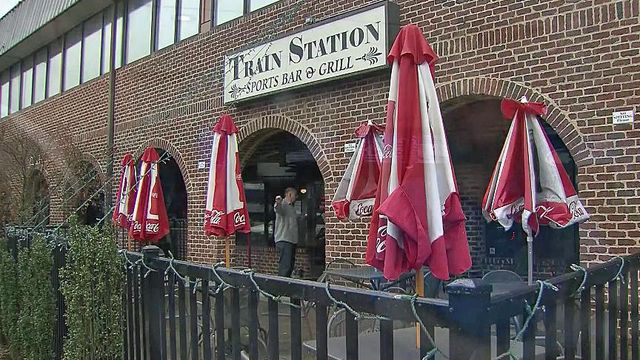One year after gaming raids, cases dropped against some NC businesses
Nearly a year after federal investigators directed gaming machine raids at close to 200 North Carolina businesses, WRAL Investigates has found that prosecutors are dropping many of the cases.
Posted — UpdatedThe Train Station, a Cary bar and restaurant, was one of the businesses caught in the middle of the raids last spring. It was targeted as part of an illegal gambling operation linked to video poker machines.
WRAL Investigates informed owner Richard Oakley that federal investigators have voluntarily dismissed the seizure of thousands of dollars and gaming machines from his restaurant.
“I'm glad to see that they realize that it's better to drop this,” he said.
Oakley's bar was one of dozens of cases dropped by federal prosecutors who cited low dollar amounts and other considerations. No charges were ever filed.
Investigators haven't dropped bigger cases, like the one against gaming machine supplier Ricky Godwin in Johnston County or Big Boy's Truck Stop in Kenly, where agents seized more than $400,000, including the owner's savings
“We’re in America,” Oakley said. “I shouldn't have to worry about someone who can just come in and rob me legally.”
Every year, North Carolina law enforcement officers seize millions of dollars in cash, homes and other property from residents under a controversial program that allows officers to take the property even if the person hasn’t been charged with a crime.
North Carolina law doesn't allow police to take property unless it's part of a criminal case. To get around the law, many agencies turn to a federal program called equitable sharing.
In most cases, it starts with a traffic stop. If an officer finds a large amount of cash and thinks it's tied to drugs, for example, the officer takes the money and asks a federal agency to adopt the case. In nine out of 10 cases, if it's federally adopted, the driver will never see the cash again, with most of the money staying with local police.
In Oakley’s case, a video showed state Alcohol Law Enforcement agents raid his business. They took machines and all of the money in the restaurant, about $7,000.
“It crushed me that day. I didn’t even have change to give a customer,” Oakley said. “Eight guys walking around with guns and badges smashing, literally, a machine open in the middle of my dining room. It was insanity.”
Officers say the seizures are a valuable crime-fighting tool, but opponents say it's a system ripe for abuse.
Defense attorney Damon Chetson is a critic.
“It’s a roundabout way the government seeks to take money from folks to impoverish them and also to penalize them,” he said. “People don’t know about this system until it actually happens to them, and they’re asking themselves, ‘How do we live in America where the police can just come along and seize money, cars, assets from me without any definitive proof that I’m guilty of anything?’”
Eddie Caldwell, executive vice president and general counsel of the North Carolina Sheriffs' Association, says the program has several benefits – taking money away from people engaging in illegal activity, saving taxpayer money and helping the law protect people.
“In some agencies, they use the funding to pay for overtime for officers or to put extra officers on the street to buy equipment,” he said.
Durham police spent some of its money on the American Tobacco Trail Initiative after a series of attacks. The Granville sheriff spent $214,000 for new patrol vehicles.
Caldwell defends the program and says he doesn’t believe it lends itself to government overreach.
“The laws we’re talking about were enacted by Congress and not law enforcement,” he said. “Law enforcement is not out to seize assets from law-abiding citizens, but they are out to seize assets from criminals.”
Since equitable sharing began, North Carolina law enforcement has seized $130 million in assets, the fifth most of any state. Of that money, local agencies kept about 80 percent. Because it is civil forfeiture, the owner of the money must prove it's not tied to illegal activity.
WRAL Investigates requested equitable sharing annual reports from several local agencies.
Equitable sharing funds by agency
• Credits
Copyright 2024 by Capitol Broadcasting Company. All rights reserved. This material may not be published, broadcast, rewritten or redistributed.






